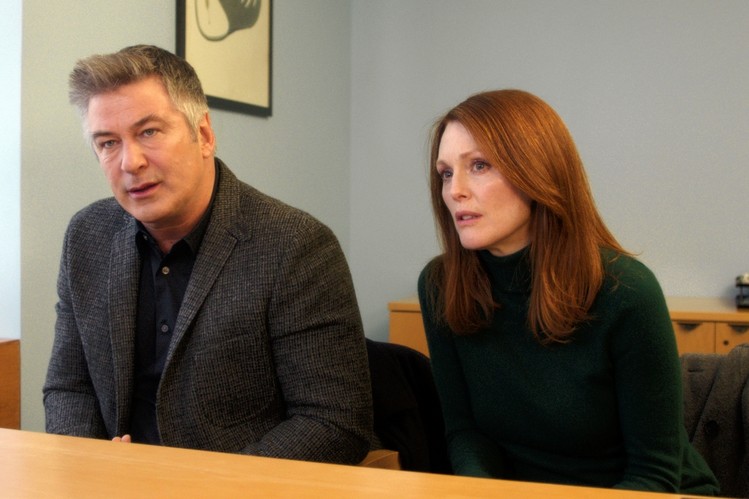The safest bet at this year’s Oscars was a Best Actress win for Julianne Moore. The win seemed assured by both the sense of dues owed to such an accomplished actress and that her performance had lifted and lit-up a movie that fought for backing and tackled a serious issue. The circumstances of Still Alice resoundingly sever Alice from the comforts and confidence she has known. Not alone is she succumbing to early-onset Alzheimer’s Disease, she must come to grips with this as a woman noted for her intellect, with a career in academia and such a developed mind that it may in fact hinder a full diagnosis.”
Initially, we the audience are Alice’s only confidant as she begins to forget words, find herself lost in familiar territory and find her mind giving way to confusion. The weight of inevitability, the implications for her family, and the scale of the challenge ahead are fully portrayed but always with quiet poignancy. In what is the only classic Oscar-bait break-down scene of the movie Alice makes a late-night confession to her husband (Alec Baldwin) as the blunt force of what’s coming becomes too much. Even here, the wave of tears and doubt is tempered; Moore portrays Alice consistently throughout as an assured, practical, proactive person, and her approach to the Alzheimer’s is matter of fact. A speech to a support group is word perfect, eloquent and rich with insight. Moore is beautifully vulnerable in the scene, nervously taking on the presentation despite having being an assured public speaker previously. The speech is a perfect microcosm for the movie; every word and every scene has a value and there is apprehension throughout for Alice and the audience.
Moore’s Oscar and every other plaudit awarded to her feels doubly earned when you consider the mania and histrionics of her character in last year’s Maps To The Stars. There is great contrast and real evidence of a developed, thoughtful investment in characters by Moore. With Still Alice there is a remarkable journey in less than two hours, highlighted most effectively in a scene where Alice, pale-faced and dazed, looks back on a recording of herself and for all purposes sees a stranger. Alice is not still Alice.
The movie does not embellish; there aren’t events, just moments and it is not concerned with noticeable style. Only in the third act does the movie give way to an overly emotive soundtrack; otherwise, Still Alice excels at being effortless. The quiet pace of the movie can be disengaging at times but the great effect is how it embodies tragedy and loss in such a real way.

